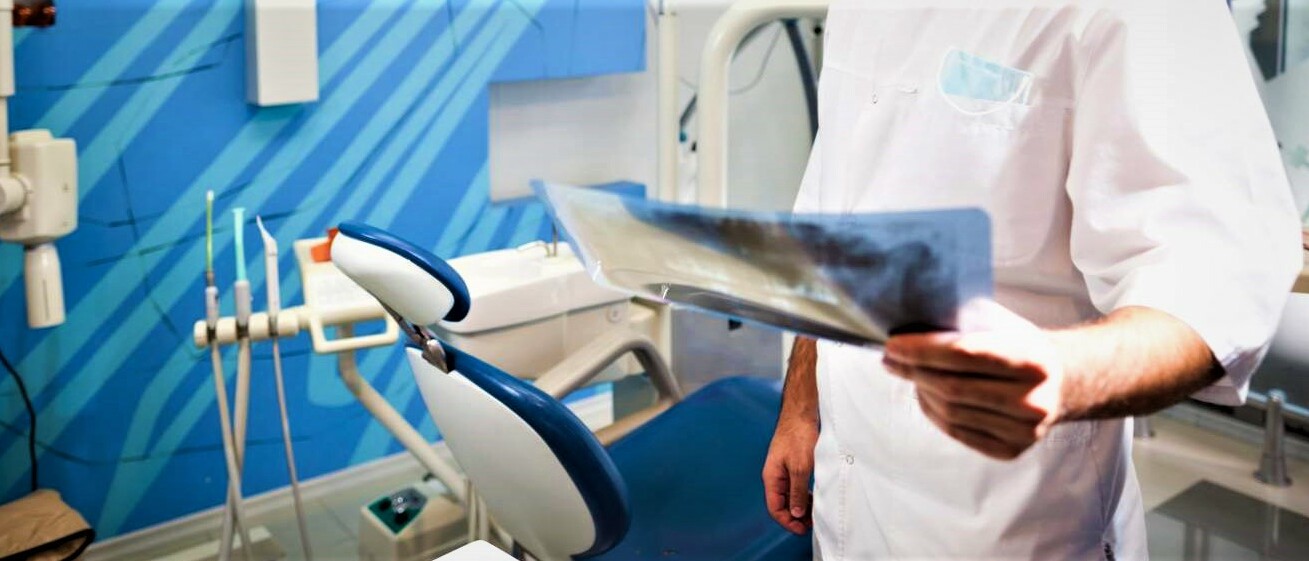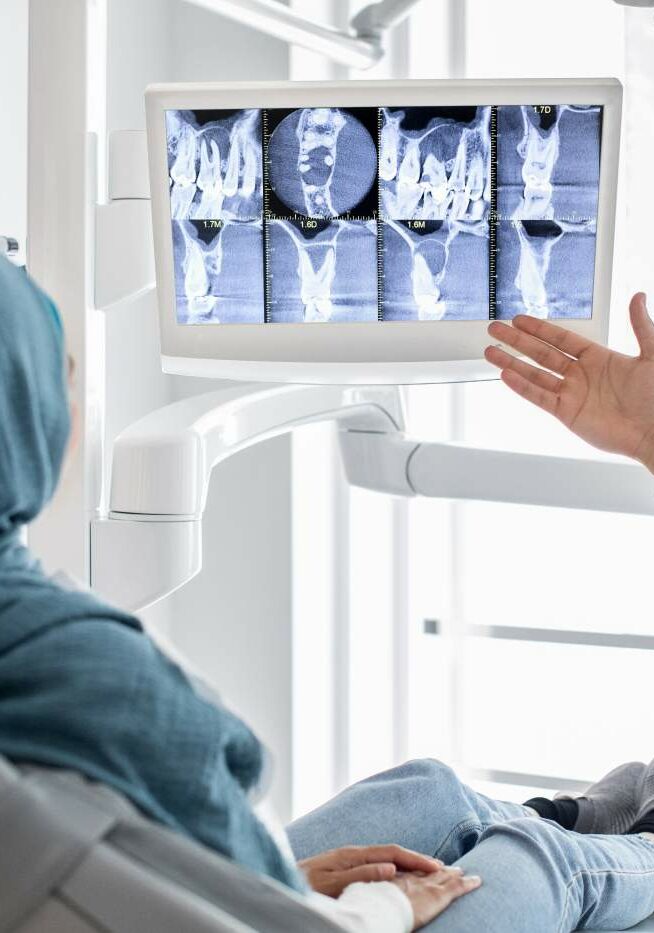Table of Contents
On this page, you’ll learn:
- What counts as a dental emergency, and what doesn’t
- The risks of going without emergency treatment
- What you can expect from your emergency treatment

We’ll Help You Find Relief, Fast
Your oral health needs to be protected. After all, your mouth contains some of the most sensitive organs in your body.
For that reason, it’s important to give dental emergencies the attention they deserve.
A dental emergency could involve extreme pain or discomfort, a lost tooth, or other major issues. If you’re facing a dental emergency, you need to contact your dentist right away.
Emergencies can be stressful, and you may not know what to do if you’re presented with a dental emergency. Don’t worry – we’ve outlined everything you need to know about getting effective care fast.
What is Emergency Dentistry?
A dental emergency can happen to anyone – however, many are afraid to seek help, even when they need it. Most often, this is because people aren’t sure what actually qualifies as a dental emergency.
As a general rule, a dental emergency is any issue that requires immediate treatment in order to limit risks or damage.
A dental emergency may be at least one of the following:
- Life-threatening, or have the risk of leaving permanent damage
- Severely painful, to the point where waiting for treatment doesn’t feel possible
- May be fixed or reversed with urgent treatment

Examples of Dental Emergencies
These are the most common dental emergencies that dentists treat – keep in mind, though, that emergencies can be unique, and don’t necessarily have to seem like what we’ve listed below.
Teeth that have fallen out
A knocked-out tooth is a major reason that you’d need emergency care ASAP. Whether your tooth was knocked out by physical activity, biting into something, or it seemed to fall out on its own, you need to act fast. The sooner a dentist can treat you, the more of a chance they have to put the tooth back in, replace it, or at least allow the space in your mouth to heal.
TIP: If you get your tooth knocked out and you have the opportunity to save it, do so and keep it in the socket without pushing too hard. If it won’t stay in, keep it water with a pinch of salt to preserve it, and bring it to your treatment.
Signs of Infection or Abscess
A tooth infection (or abscess) is a pocket of collected bacteria that is formed in or around your tooth. You may notice that your tooth feels sensitive or painful if it is infected – otherwise, you may notice pain and a foul smell or taste when eating, or even swelling.
Infections must be treated as soon as possible. Otherwise, they may spread to the rest of your mouth – or even to your body. In severe cases, infections can be life-threatening.
Painful or threatening fractures, chips, or cracks
Cracked teeth can come from physical contact, tooth decay, infections, and many other causes.
A cracked tooth should be checked out by a dentist immediately, if possible. Even small cracks can quickly spread and leave your teeth vulnerable to disease, decay, and physical damage.
With emergency treatment, your dentist can seal up your tooth and stop the situation from leading to an extraction – or, if an extraction is necessary, they can do so in a way that prioritizes your oral health.
Severe toothache
If your toothache won’t go away on its own, and the over-the-counter pain prescription doesn’t seem to take off the edge of your pain, you need to book an emergency treatment.
Severe tooth pain could be a sign of a major tooth problem, like tooth decay or an infection. In any case, a dentist can help identify the problem and treat it quickly.
Others
An emergency doesn’t have to look like what we listed above – technically, any dental issue could be an emergency if it presents a risk that needs to be urgently addressed. Severe pain, excessive bleeding, and signs of infection could all point to an emergency.


What Doesn’t Count as a Dental Emergency
We’ve listed above what to look for when determining whether something is a dental emergency or not. So, what wouldn’t count as an emergency?
In many cases, a dental issue may require care, but not in an urgent sense. These can be treated by your dentist regularly, and you should book an appointment ASAP – however, they don’t require immediate treatment.
Cavities, root canals, lost fillings or crowns, toothaches, chips, and cracks don’t inherently count as emergencies – unless there is an element of urgency, severe pain, or risk to your long-term health.
When in doubt, ask your dentist if your situation qualifies as an emergency. It’s always better to be safe than sorry.
Why Seeking Urgent Treatment is a Must
If you’re dealing with a dental emergency, don’t hesitate to reach out for help.
Emergency dentistry services are there for reason. If you face an emergency but wait too long for treatment, you might end up having to pay more – both with more expensive dental bills and long-term or permanent damage.
It’s important to recognize that dental emergencies indicate major risks, and these risks have a higher likelihood of becoming a problem if your emergency is not treated.
What to Expect From Emergency Dentistry
An emergency dental treatment isn’t quite like a regular checkup. During regular appointments, dentists provide a standard approach to cleaning as they aim to improve your overall oral health.
During an emergency treatment, your dentist will specifically look at the part of your mouth where the emergency seems to be occurring. Typically, they will start by performing a quick examination to determine the severity of the problem and the appropriate path of treatment.
Emergency Dentistry Doesn’t Have to Hurt!
Depending on what your treatment consists of, your dentist may give you a local anesthetic. This numbs your mouth to ensure that you do not feel any pain as your dentist completes your treatment. In some cases, your dentist may have you be sedated, meaning you are put to sleep during your appointment.
Your dentist can explain these tools further if you believe they could help you during your emergency treatment.

